Counting skills Easy Word Problems Worksheets for Ages 5-6
6 filtered results
-
From - To
Discover our engaging "Counting Skills Easy Word Problems Worksheets" designed specifically for children aged 5-6! These worksheets offer a fun and interactive way for young learners to enhance their counting abilities through simple word problems. Each problem encourages critical thinking and application of counting in real-world scenarios, promoting math literacy in an enjoyable manner. Whether in the classroom or at home, our printable worksheets provide valuable practice that aligns with early education standards. Empower your child’s confidence in math and nurture their problem-solving skills today! Explore the full collection and make learning counting an exciting adventure!
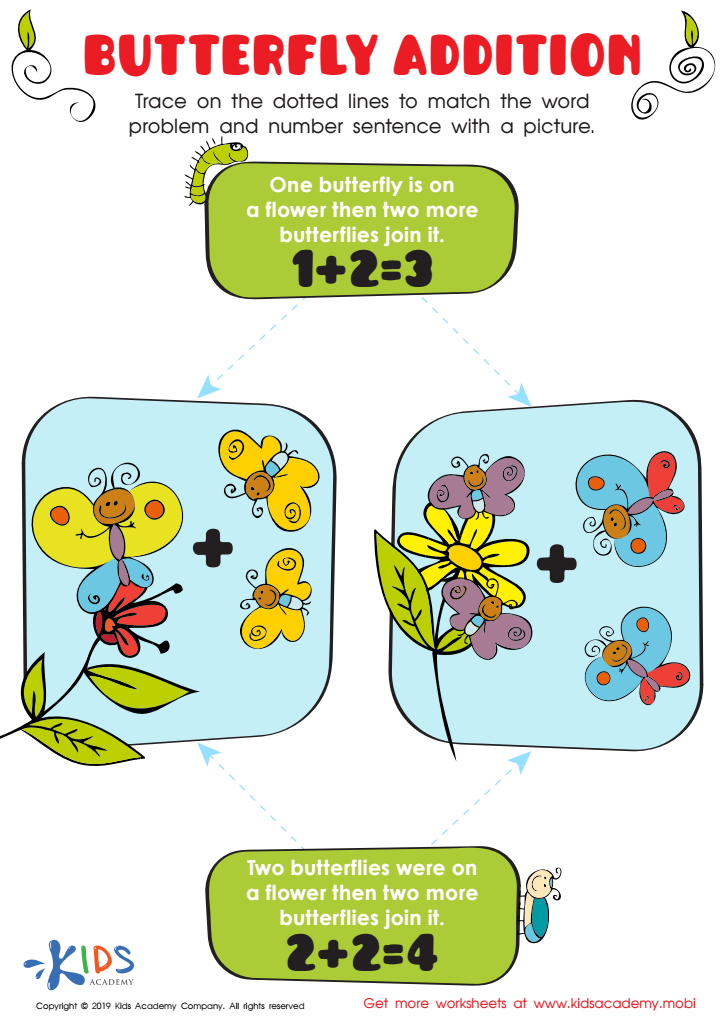

Butterfly Addition Worksheet


Counting Seedlings Worksheet
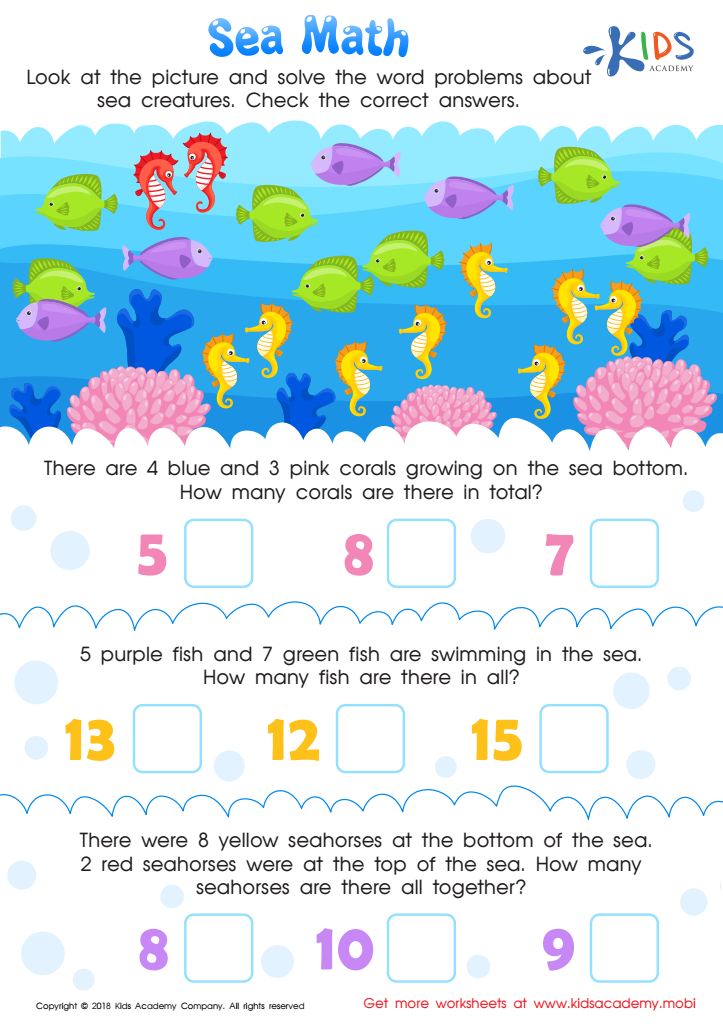

Sea Math Worksheet
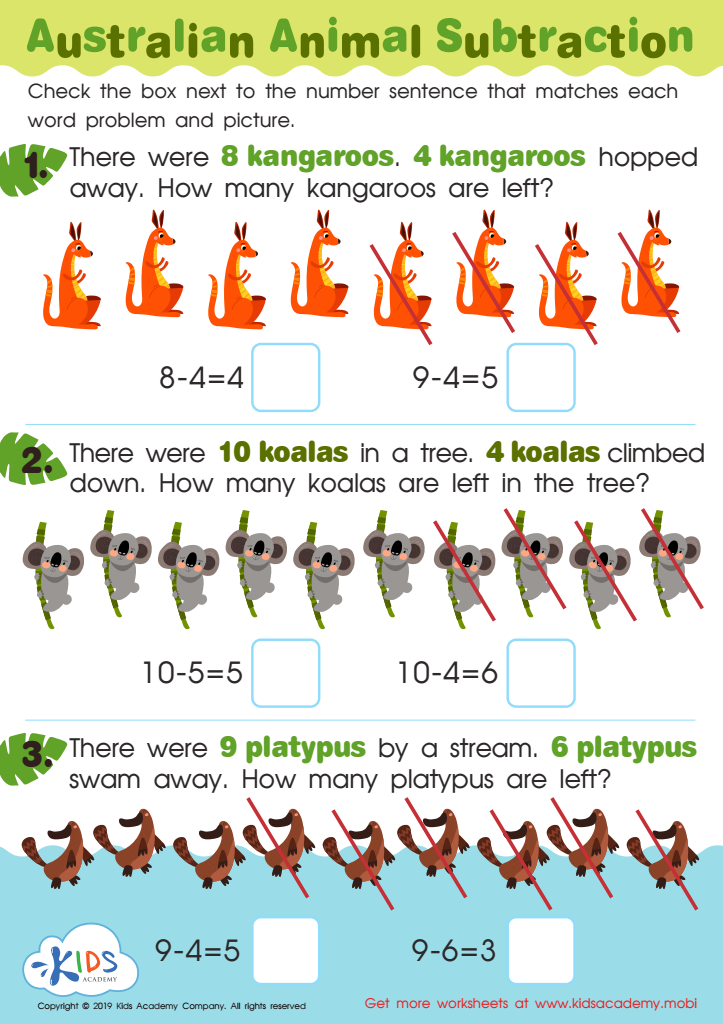

Australian Animal Subtraction Worksheet
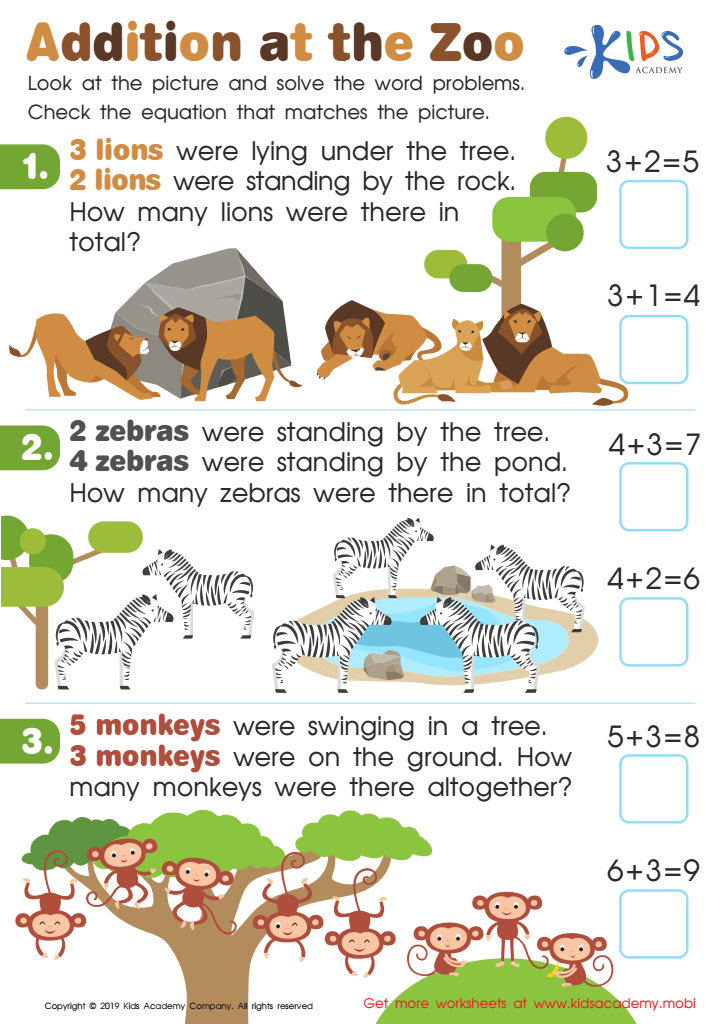

Addition at the Zoo Worksheet
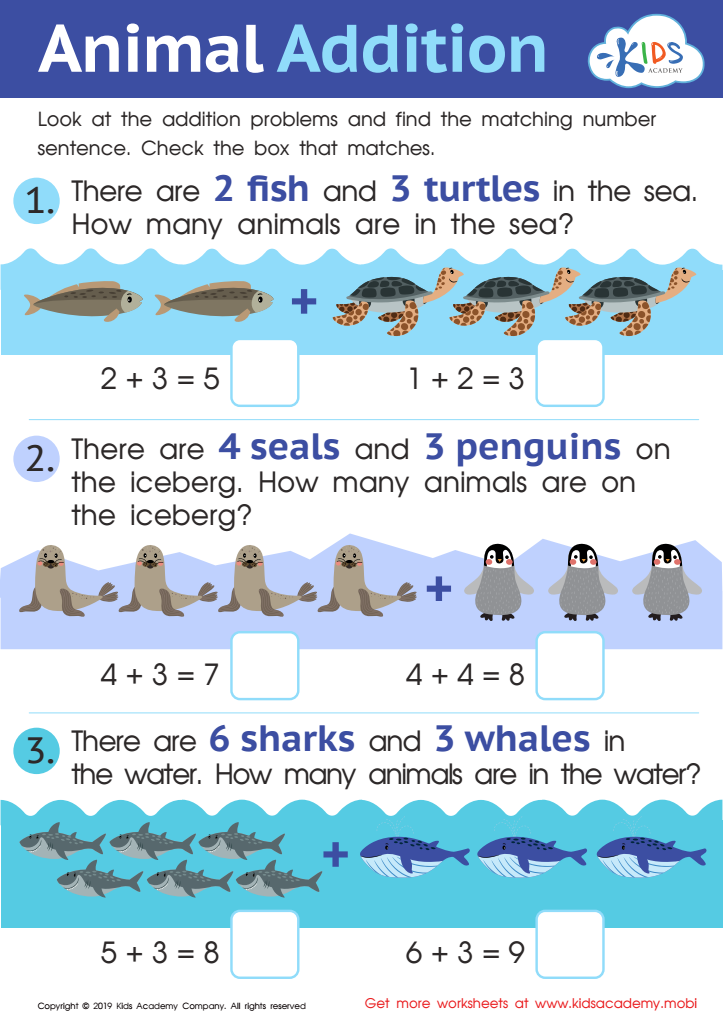

Animal Addition Worksheet
Counting skills and easy word problems are fundamental for children aged 5-6 as they lay the groundwork for their future mathematical understanding and reasoning. At this age, children begin to grasp basic numerical concepts, which enhances their ability to communicate about everyday situations involving quantities. Help with counting promotes cognitive development by improving memory, attention, and problem-solving abilities.
For parents and teachers, fostering these skills is essential in building a child’s confidence in mathematics. Engaging with easy word problems not only supports numeracy but allows children to connect mathematical concepts to their real-life experiences. For example, counting the number of apples in a basket or how many toys they have creates a practical understanding of numbers.
Moreover, learning these skills early establishes a strong foundation for more complex math in the future, such as addition and subtraction. This early exposure helps eliminate math anxiety later on, as children become comfortable with numbers from a young age. Parents and teachers should prioritize counting skills and word problems, as they are crucial in developing critical thinking and a positive attitude towards learning, fostering well-rounded students who are prepared for academic challenges ahead.
 Assign to My Students
Assign to My Students

















